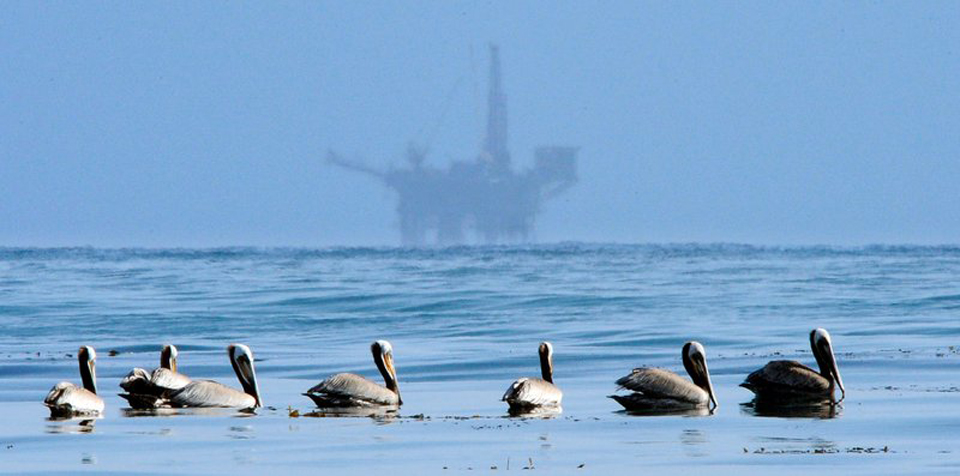
LOS ANGELES (AP)—Oil and gas companies drilling in state waters off Southern California violated regulations nearly 400 times in the past three years, according to a report being released Wednesday by an environmental group.
Records compiled by the Center for Biological Diversity show state violations ranging from severe corrosion to failed and missing tests required to gauge the strength of wells. No civil penalties were issued for any of the violations, according to a spokesman for the state agency responsible for overseeing oil operations.
The group said the problems could pose a serious threat to the environment if aging infrastructure fails and spills oil on beaches near major cities.
“Knowing these facilities have been out there decades upon decades upon decades is a sign you’re going to see a lot of corrosion and disrepair,” said Kristen Monsell, an attorney for the center. “We need to start getting all of this dirty decaying infrastructure out of our ocean for good.”
The findings come three years after a corroded two-foot wide pipe owned by Plains All American Pipeline ruptured on land and spilled 120,000 gallons of crude that flowed toward the Santa Barbara coast. More than a fifth of the oil ended up in the ocean.
The group produced its findings based on a California Public Records Act request filed with the Department of Conservation for all violations notices issued to offshore oil operations by the Division of Oil, Gas, and Geothermal Resources since 2015.
The agency regulates oil and gas drilling and production throughout the state and in waters up to three miles from shore. The violations don’t include platforms in federal waters, where President Donald Trump intends to expand oil and gas drilling.
Of the 381 violations, about 290 were racked up by the state’s biggest oil and gas producer, California Resources Corp., and two subsidiaries, THUMS Long Beach Co. and Tidelands in Long Beach and the Huntington Beach areas.
Most of the violations were for missing integrity tests required at least every five years. The environmental group found long lapses—some exceeding 20 years—between tests. Most of the missing and failed tests by THUMS on islands owned by the city of Long Beach were for injection wells used to stimulate oil and gas production or dump waste waters from the drilling process.
Don Drysdale, a spokesman for the state regulatory agency, said Tuesday that the division was still trying to verify that mechanical integrity tests were completed and passed by THUMS and Tidelands. He said no civil penalties were issued.
Critics of the agency have long said regulators were too cozy with oil interests and had gone easy on enforcement. The current administration has acknowledged failings and vowed to be more proactive about oversight.
“Years and years had gone by without any record of those tests being performed by the company,” Monsell said. “That is also emblematic of DOGGR’s lack of enforcement and not taking sufficient action when it does act.”
Some of the violations highlighted by the environmental group were at two neglected operations off the coast of Ventura and Santa Barbara counties.
The state is seeking $100 million this year to plug wells and decommission Rincon Island, where it found a “severe state of disrepair,” and at Platform Holly, which has been idle since Denver-based Venoco filed for bankruptcy last year.

MOST POPULAR TODAY

‘Warning! This product supports genocide’: Michigan group aims to educate consumers

“Trail of Tears Walk” commemorates Native Americans’ forced removal

After months of denial, U.S. admits to running Ukraine biolabs

Ohio: Franklin County treasurer attends Netanyahu meeting, steps up Israel Bond purchases

Hold the communism, please: SFMOMA’s Diego Rivera exhibit downplays artist’s radical politics






Comments